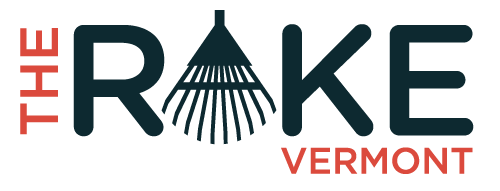Imagine you’re in a cleanroom, where everything—all surfaces, your clothing, the air—must be sterile and pristine. You see someone drop a bunch of loose sterile wipes on a counter, next to a mysterious, white, crusty residue and some office supplies—a calculator, a pen, some notes. Your companion grabs a walkie talkie, talking into it before placing it directly on the wipes. Then you see those wipes pass over materials to prepare a drug that will be injected into patients all over the country.
While that might seem less than sanitary, it was only one of a host of hazardous conditions observed by FDA inspectors in the recently shuttered pharmaceutical outsourcing facility Edge Pharma of Colchester. From cleanrooms with “an unknown brownish rust like material,” the “presence of vermin” like ants, spiders, mosquitos, and a “greenish unknown fuzzy substance” to persistent failures in implementing procedures that would ensure the safety and quality of their products, the December 2021 inspection report paints a picture of a facility not fit to provide safe, sterile drugs to health care providers.
Edge Pharma LLC had “a history of serious violations” before a complaint was filed by the United States on behalf of the Food and Drug Administration (FDA) on May 20 against the company, CEO William Chatoff, and Director of Quality Assurance Kurt Radke.
The complaint outlines serious concerns with the facility’s operations from 2014 to 2021 and states that in spite of the FDA’s “repeated attempts” to get the defendants to comply with regulations, they “continue to demonstrate that they are unwilling or unable to implement sustainable corrective actions” to ensure the safety of their drugs.
Given “the likelihood that violations will continue in the absence of court action,” shutting down operations was the only way to ensure public safety.
On June 10, Chatoff and others signed a consent decree that outlined corrective measures the facility could take to resume production.
In regulatory changes, Chatoff saw a business opportunity
As a pharmacy student at the Massachusetts College of Pharmacology and Health Sciences, Chatoff was dismissed after “three years of bad grades.” He says that he learned perseverance from this experience, as the school “let [him] back in after kicking [him] out.” After gaining his license in 1991, he worked as a nuclear pharmacist, founding PharmaLogic Holdings in 1993. (The company pursued injunctive relief and damages against Chatoff after he left the company in 2012.)
According to an Edge Pharma Facebook post, Chatoff “recognized an opportunity” for his next business venture with a 2013 change in law.
After a 2012 outbreak of fungal meningitis that “grievously harmed over 750 people” due to contamination at the New England Compounding Center, lawmakers were pressured to ensure better quality assurance in similar compounding facilities. The resulting amendment to the Food, Drug, and Cosmetic Act created the category of Section 503B outsourcing facilities.
While traditional compounding pharmacies produce drugs based on individual prescriptions, outsourcing facilities produce sterile drugs at a large scale and are subject to strict FDA regulations, namely the Current Good Manufacturing Practice (CGMP). Pharmaceutical companies (such as Pfizer or Johnson & Johnson) are also subject to CGMPs, but they need to comply with even more FDA regulations.
Outsourcing facilities under section 503B are granted exemptions to those regulations in exchange for compliance with CGMP, regular inspections, and other conditions, such as reporting adverse events to the FDA. They distribute their products directly to hospitals and other healthcare providers and only produce drugs for which the FDA has identified a medical need and that do not copy any FDA-approved, commercially available drug. In this way, outsourcing facilities are intended to “bridge the gap between the traditional compounding pharmacy and the pharmaceutical drug manufacturer.”
Chatoff described his inspiration when learning of this new opportunity: “I said, I know a lot about compounding — I can do this.” He started Edge Pharma in December 2013.
Chatoff chaired the state board that regulated and oversaw his facility
With this significant change to the regulatory framework of drug compounding, many state boards of pharmacy have an increased responsibility in their oversight. Or, as the FDA puts it: “State officials are often the first to identify compounders that are operating like conventional manufacturers or that engage in poor drug production practices that could lead to patient harm.”
Gabe Gilman, general counsel to the Vermont Office of Professional Regulation, which oversees the Vermont Board of Pharmacy, explained that “the Board [of Pharmacy] has an unusual relationship to these 503B entities in that the federal officials in the Food and Drug Administration are heavily involved in regulating the space.”
Gilman says that while “it’s very unusual in that the federal government and the state government have this kind of overlapping jurisdiction,” identifying and addressing the kind of problems that led to Edge Pharma’s recent closure are within the Board’s purview.
Considering this, it is especially alarming that while Chatoff’s facility was operating with egregious violations of the FDA’s CGMP, endangering consumers of their products, he was serving as the chair of the Vermont Board of Pharmacy.
In 2019, Governor Scott appointed Chatoff to the Vermont Board of Pharmacy, and he served as the chair until informing the director of the Office of Professional Regulation that he intended to step down in March 2022. Gilman pointed out that “one can infer certain things,” about the timing of Chatoff’s resignation, but that he was not at liberty to discuss any more details.
More than a dirty cleanroom
Chatoff and Edge Pharma have pushed the limits of numerous aspects of the Drug Quality and Security Act.
Outsourcing facilities can only compound drugs that are not copies of an approved FDA drug, unless the FDA has announced a shortage and need for a certain drug. However, in 2020, the facility faced a lawsuit from Azurity Pharmaceuticals Inc. after Azurity accused Edge Pharma of copying one of their approved drugs. A federal judge dismissed the case in May 2021 because the lawsuit was filed on behalf of the pharmaceutical company instead of the FDA.
On January 22, 2021, the FDA discovered another way Edge Pharma was skirting the law. In a letter to Chatoff, the director of the FDA’s Office of Compliance and Biologics Quality held that Edge Pharma was unlawfully marketing allergy immunotherapy products without the appropriate license. Furthermore, they pointed out that even if the facility had the license, Edge Pharma would not be authorized to sell the drugs because “biological products subject to licensure … are not eligible for the exemptions for compounded drugs under sections 503A and 503B of the FD&C Act.”
Ultimately, Edge Pharma’s downfall was the persistent flouting of the FDA’s CGMP, which “prevent consumer harm by maintaining the minimum standards necessary to protect patients from the risks of contaminated or otherwise substandard drug products.”
On August 6, 2021, the California State Board of Pharmacy issued a 30-day cease and desist order against Edge Pharma, citing nine violations of CGMP. These violations ranged from a lack of adequate testing to problems with the facility’s air supply systems and even bug infestations.
In response to the evidence presented of these violations, Chatoff shrugged off the possible consequences in testimony that “lacked specificity and detail.” The California Board of Pharmacy upheld the cease and desist order, stating that Chatoff’s “dismissal of many cleaning-related standards as posing ‘zero’ risk to consumers is concerning.”
An FDA inspection report issued on December 1, 2021 listed 13 problematic areas of observation, including uncleanliness, a lack of established and followed test procedures, inadequacies with HVAC systems, and inadequate routines around equipment maintenance. The report often stated that violations were “repeat observations” from 2018 and 2020 inspections.
Only three days after the FDA delivered these “inspectional observations,” Edge Pharma issued a voluntary recall of all of its products. On December 4, 2021 the FDA released a statement recalling over 60 drugs “due to process issues that could lead to a lack of sterility assurance for products intended to be sterile.”
Since then, the facility has not been able to remedy these problems and avoid the current injunction.
Protecting the public?
Given Edge Pharma’s repeated disregard for safety regulations and laws that guide production in 503B outsourcing facilities, one may think that the man in charge is either terrifically inept or simply doesn’t believe the rules apply to him. The California Board of Pharmacy’s description of Chatoff and his insistence that there has “never been and will never be a legitimate public safety concern” with Edge Pharma’s practices could lead us to believe either of those two options.
Moreover, Chatoff’s position as chair of Vermont’s Board of Pharmacy raises questions about the Board’s ability to protect the public in cases in which members have a direct interest to continue or obscure dangerous practices.
When asked about this conflict, Gilman explained: “One of the inherent characteristics of professional self regulation is that the licensed entities or licensed practitioners are in on their own regulation.” While one hopes to benefit from members’ expertise, Gilman said it also “makes it much more likely that you’re going to encounter a conflict of interest.”
While the Office of Professional Regulation seeks to appropriately manage conflicts of interest, Gilman pointed out that “they are kind of endemic to this territory.”
While it’s unclear if professional boards are adequately equipped to protect the public and address potential conflicts of interest, it is clear that the actions of William Chatoff and Edge Pharma raise grave concerns over public safety that extend far beyond Vermont.
The COVID-19 pandemic has brought greater public attention to the intricacies of the pharmaceutical industry and its regulatory frameworks than any time in modern history, and has laid bare the global scale and cost of inequitable access to medicine.
Researchers, medical practitioners, and activists have long pointed to the profit motive as incompatible with public health. The drive to maximize revenue and minimize costs inevitably leads to sacrifices in safety for workers and patients, distorted priorities in new drug development, and a regulatory system that is hobbled by legislators and staffed by those with past and future financial interests in those being regulated. Edge Pharma, seen in this context, is a symptom of a much deeper structural ailment. And like all untreated ailments, these symptoms are likely to continue until someone intervenes with a cure.



